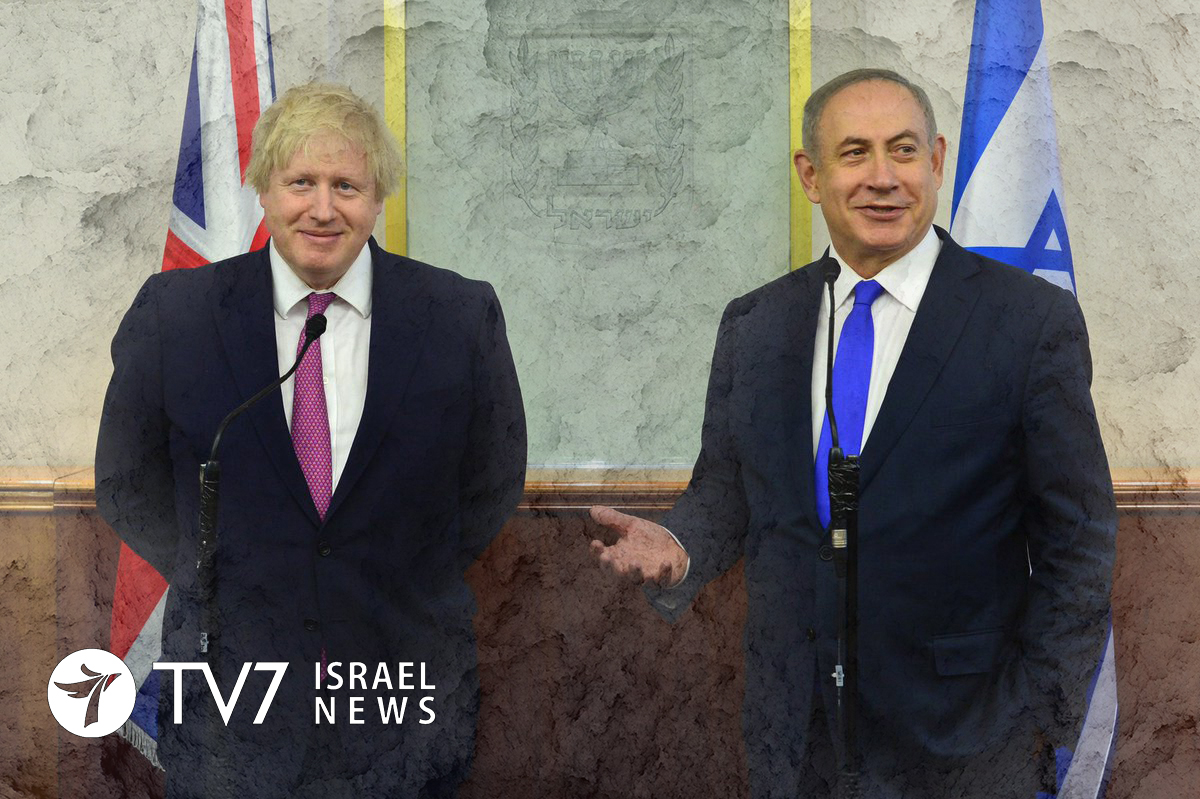Prime Minister Benjamin Netanyahu, who also serves as Israel’s Foreign minister, met with his British counterpart Boris Johnson in Jerusalem last night, during which they discussed regional cooperation, the Israeli-Palestinian conflict and the desire of London and Jerusalem to strengthen bilateral relations, primarily in the sectors of economy and trade. Secretary Johnson took the opportunity to declare his government’s staunch support for the state of Israel, while reiterating Britain’s hope to see a two-state solution to the decades-old conflict with the Palestinians.
“All in our government are, as you know, firm strong supporters, rock-like supporters of Israel, and what we want to see is an Israel that is at peace with its neighbors and I should remind you that the policy of our government is for a two-state solution, which is what we want to achieve and hope to bring about in a modest and humble way,” said Johnson.
Foreign Secretary Johnson stressed that while Israel had every right to combat terrorism, it should aspire to remove obstacles to peace… pointing to Israel’s settlements, built on lands the Palestinians demand for their future state, under any agreement.
Prime Minister Benjamin Netanyahu rejected the claim, in which Israel’s West Bank settlements were an obstacle to peace, stressing that the root of the Israeli-Palestinian conflict was the persistent refusal to recognize a nation state for the Jewish people in any boundary.
“It is evident that we agree on most things but not on all things, and one of the things I think the source when you analyze the problem, go to its roots, and the reason we haven’t had peace here for 100 years is not the settlements but persistent refusal to recognize a nation state for the Jewish people in any boundary. I think if you want to solve the problem, go to the core of the problem, and that is something I look forward to discussing with you further,” said Netanyahu.
Earlier in the day, the British Foreign Secretary met with the Palestinian leadership in the West Bank city of Ramallah, during which he emphasized that even though London was interested in seeing renewed negotiations to bring about an end to the Israeli-Palestinian conflict, the United Kingdom firmly believed that only through direct negotiations, peace was attainable.
“As I say, I think it will be a mistake for us in the UK to try and impose ourselves like some ‘deus ex machina’ into this negotiation, we have leaders, partners on both sides so I think it’s, it will be accepted, we need to come together and they will have our full support, that’s the priority, thank you,” said Riyad al-Maliki, Palestinian Foreign Minister.
Palestinian Foreign Minister Riad al-Malki said he and Johnson held a candid meeting where they discussed how to move “forward with the peace process.” They also discuss the new American Administration in Washington, which the Palestinians believe would be the only broker that could lay the groundwork for a renewed political process.
